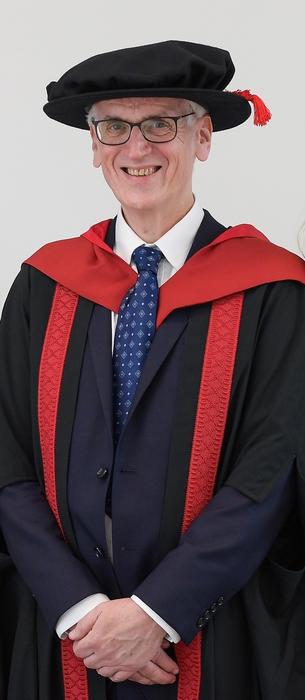June 25 2024 – Fewer GP appointments and the COVID lockdown have exacerbated declining continuity of care in English general practices.

Credit: University of Leicester
June 25 2024 – Fewer GP appointments and the COVID lockdown have exacerbated declining continuity of care in English general practices.
A lack of available appointments and the aftermath of the COVID pandemic have exacerbated declining continuity of care in General Practices across England.
Being able to get an appointment at GP surgeries and to see the same doctor improves patient health, is a more cost-effective use of healthcare resources, and is popular.
A new study, led by the University of Leicester, analysed data across 6,010 English practices between 2018 and 2022, using continuity data from the General Practice Patient Survey which showed that fewer patients both had and were able to see a preferred doctor in their practices.
The national average dropped from 29.3 per cent to 19 per cent of patients in just four years, with the decline steepening following the COVID-19 lockdown. Although the decline occurred across all types of practices, differences between practices widened over this period.
The study examined a range of factors related to both patients and their practices in order to determine whether any were linked to the rate at which continuity was declining. These included the percentage of patients with White ethnicity, the numbers of GPs and nurses per 10,000 patients, and the percentage of patients reporting being able to get a same day appointment, as well as the practice’s deprivation score and region in England.
Dr Steven Levene from the Department of Population Health Sciences at the University, who led the study, said: “Our study showed slower declines in continuity in practices with more doctors and with higher percentages of patients seen on the same day as booking. However, continuity declined more quickly in practices where continuity had previously been better, where there were higher percentages of patients of White ethnicity, or practices located in many areas outside of London.”
The rate of declining continuity was not associated with deprivation, whether the practice was urban or rural, practice size, nurse numbers, NHS contract type or NHS practice funding.
The study has now been published in the journal Annals of Family Medicine.
Dr Levene said: “Patients who can regularly see the same doctor usually have increased satisfaction with their care, while avoiding having to repeat their medical history leads to a more efficient use of time and resources.
“The surge in demand following lockdown and the backlog of work have resulted in higher workloads in already overstretched practices: not only are patients finding it harder to get an appointment, but this is less likely to be with their regular practitioner. Not surprisingly, public satisfaction with the NHS is at a record low and improving access to a GP appointment is the top reported priority for patients (British Social Attitudes survey).
“The number of qualified GPs has remained relatively static whilst the population continues to grow. Despite more GPs being trained, a recent poll of GPs revealed many are struggling to find an NHS GP post; yet an established NHS scheme to support practices financially to expand their workforce excludes doctors.
“The disappearance of continuity of care should not be inevitable. By prompt effective nationwide action to help practices provide enough appointments and prioritise continuity more within appointment systems, and to remedy shortages of GPs in many practices, the NHS might be able to halt and then reverse this worrying trend. Continuity of care matters – to patients, to the better delivery of healthcare, and to the health of the country.”
Ends
Notes to editors
For further information and filming requests, please contact the University of Leicester press office on 0116 252 2160 or press@le.ac.uk
About the University of Leicester
The University of Leicester is led by discovery and innovation – an international centre for excellence renowned for research, teaching and broadening access to higher education. It is among the Top 30 universities in the Times Higher Education (THE)’s Research Excellence Framework (REF) 2021 rankings with 89% of research assessed as world-leading or internationally excellent, with wide-ranging impacts on society, health, culture, and the environment. The University is home to more than 20,000 students and approximately 4,000 staff.
Journal
The Annals of Family Medicine
DOI
Method of Research
Data/statistical analysis
Subject of Research
People
Article Title
Ongoing Decline in Continuity With GPs in English General Practices: A Longitudinal Study Across the COVID-19 Pandemic
Article Publication Date
25-Jun-2024



